In the past, yours truly has taken issue with the order known as the Archons. Also known as the Knights of St Andrew, this lay order of business leaders and other eminences was created several decades ago as an auxiliary of the Greek Orthodox Archdiocese, with a special emphasis on absolute loyalty to the Ecumenical Patriarchate.
This term, however, is unfortunate in many respects. For one thing, it smacks of hubris in that its members are self-proclaimed leaders (archon in modern Greek means “leader”). Secondly, it scandalizes Christian ears who are cognizant of what Christ Himself said about leaders: that they are “to be last”; to be the opposite of what is found in the gentile world, where “their leaders lord it over them” (Matt 20:25).
There is however a third misgiving about this term, one which I’m afraid has escaped the notice of many Greek Orthodox Christians, hierarchs and priests as well as laymen. Specifically, that it has another more nefarious origin in Gnosticism, that is to say, that within that particular heresy, “archons” were terrifying cosmological entities which controlled the universe, all in the service of malevolent Demiurgos (“creator”).
A word must be said at this point here about this so-called demiurge. According to Gnosticism (which was heavily influenced by Neoplatonism), the created universe was evil. Hence the God of the Old Testament was not the real God but a self-deluded semi-divine being, usually called Sammael (“the god of the blind”).
To Hellenistic sensibilities, the inferiority of this creator-god was self-evident, having its basis in the Old Testament Scriptures themselves. In Genesis, we are told for example that God “walked with Adam”. In the story of the hospitality of Abraham and Sarah at Mamre He was offered food to eat. These are by no means exhaustive accounts. In any event, to the Gnostics, these passages indicated that Yahweh had a physical body.
As for His personal attributes, they were found lacking as well. He ordered mass killings for instance and constantly reminded the Israelites that He was a “jealous God” who would chastise them if they followed or “whored” after other gods. The implication being that monotheism as preached by the Prophets was itself a delusion, that Yahweh was not alone but one of many and that He was acutely aware of it. All told, the Yahweh of the Old Testament had nothing in common with the God which Jesus preached.
In any event, to augment His cult, Yahweh ordered the Israelites to be natalist, to be “fruitful and multiply” and to “subdue the earth”. To make sure that this would happen, the Mosaic Law was instituted and it prescribed the death penalty for those who practiced homosexuality, bestiality, incest and all manner of non-vaginal coition.
For a great number of non-Jews, such a god was no god at all but a capricious, semitic tribal deity at best. His inauguration of the created order was therefore unfortunate. In fact, it violated all manner of Neoplatonic precepts. Thus it followed that since creation was evil, natural heterosexual relations were to be avoided at all costs. This made sense since according to this philosophy, the purpose of existence was not to perpetuate creation but to break free of it and return the soul to the real God.
According to this cosmology, in order for Sammael to better enforce his carnal plan for the cosmos, there were several demonic beings who controlled the various aspects of the universe. Because there were seven planets in the sky (the sun, moon, Mercury, Venus, Mars, Jupiter, and Saturn),1 it was commonly agreed that there were seven of these beings ruling as a hebdomad who were called “archontes” (principalities or rulers).2
The dependence upon the number of archons upon astronomical phenomena was obvious: seven days of the week, seven planets and thus seven archons. Other Gnostics, such as Basilides, taught that as there were 365 archons who were presided over by a “Great Archon” known Abraxas. In any event, seeing as how they corresponded with astrophysical phenomenon, it seemed logical that they likewise had control over different aspects of physical reality.
There were several different Gnostic sects, among them the Ophites, Sethites, Mandaeans, and Manicheans. Usually, they were stand-alone, non-Christian mystery schools which were rivals to Christianity. Frequently, however, they could (and often did) penetrate into orthodox Christianity. Those Christians who were more heavily influenced by Gnosticism, likewise eschewed marriage and procreation. (Although it must be said that the eschatological fervor of mid-first century Christians may also have had an influence on anti-natalism as well.)
To be sure, Christianity taught the exact opposite: that creation was good (cf Gen 1:1, John 1:1-3 and John 3:16). It stood to reason therefore that the God of Israel was likewise good and naturally it followed that His divine Logos, the principle by which creation came into existence had to be good as well. Goodness, reason, and logic could be discerned throughout the universe, even in its fallen state. Clearly, Christianity and Gnosticism were incompatible.
As to why it fell, the blame was placed squarely on Satan’s shoulders. Formerly an archangel of exceedingly high status named Lucifer (“light-bearer”), Satan had tried to usurp God’s throne for himself. When he was cast out of heaven, he tried instead to propagate his original plan by insinuating himself into Paradise wherein he was able to seduce Eve. Because of his success, his power over the world was tremendous, so much so that only God Himself could break his grip over it.
What we have, therefore, in Christianity is a mirror image of Gnosticism. Both religions taught that the world was created but that its intention was different: for Gnostics, the world was evil from its inauguration; for Christians, it was initially good having fallen however because of the serpent (ophis in Greek).3 In both systems, however, there was room for demonic entities who had sway over the universe. And in each case, these beings were called archontes.4
This was not a mere non-Christian fantasy. We find corroboration for their existence in St Paul’s Letter to the Ephesians (6:12), where he informs the Church that “we wrestle not with flesh and blood but principalities and powers”. Likewise, in Romans 8:38, he states that “For I am persuaded that neither death nor life, nor angels nor principalities nor powers, nor things present nor things to come.”
Paul’s concern was that the world was already in the grip of Satan who was “the god of this world” (2 Cor 4:4) but that those who were illumined through baptism had little to fear because Christ had already “disarmed principalities and powers, [making] a public spectacle of them, triumphing over them in it” (Col 2:15). As to what realms they inhabited, he believed that they lived in the upper atmosphere (Eph 2:2).
The above is not meant to be an exhaustive introduction into Gnosticism or on the parallels between Gnostic and Christian understanding of these spiritual entities. Nor is it to be an introduction into the controversial toll-house theory. I meant it instead to be a warning as to why this unfortunate term should be avoided at all costs. Not merely because it is prideful and goes against Jesus’ very precepts about true servant-leadership but because it also has a nefarious connotation within Gnosticism –and of course, the toll-house connotations cannot be avoided.
I am under no illusion that this fine organization will change its name because of what is written here. It is too late in the day for that to happen in my humble opinion. And given the prideful and parochial vision of many within this organization, based as it is on Greco-Constantinopolitan exclusivism, then its ethnocentric myopia will continue to be its raison d’etre.
My concern instead is how and why the bishops and theologians of the Greek Orthodox Archdiocese of America allowed this term to be used in the first place. It seems inconceivable to me that trained theologians at the time of this organization’s inception were unaware of the full implications of this loaded word. As such, I’m curious as to what else has slipped the grasp of the Greek-American episcopate.5
Regardless, given the extreme Constantinopolitan supremacism that permeates the thought of the new Archbishop of the GOA, I for one, cannot see things being any different.
Used with permission.

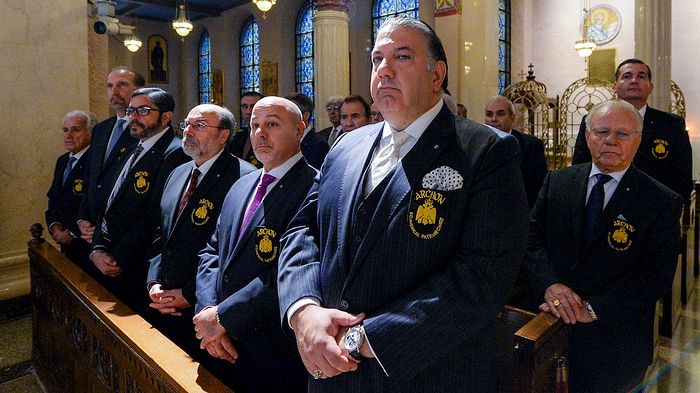
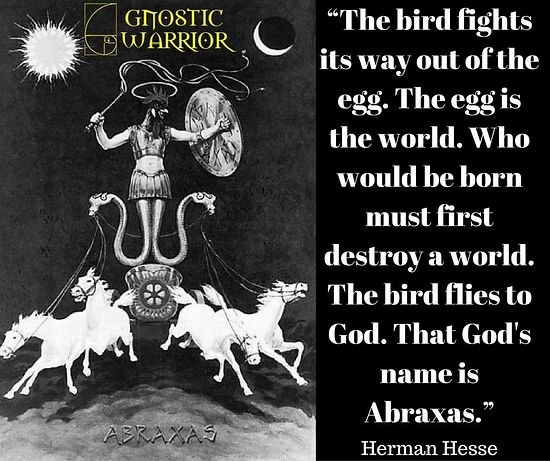
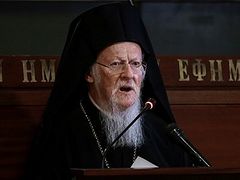
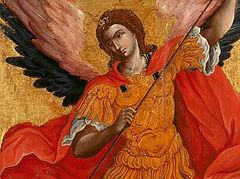
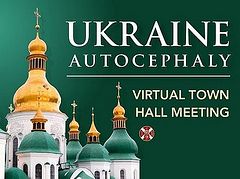
First, a word being used in Gnosticism doesn't make it bad. This notion may be come that in english nearly every greek word is a term, though it may be just every day word in greek. Second, calling one selves leaders, isn't wrong, since every organization has leaders and leads in something. An issue we may have is what kind of leadership is nurtured within an organization, and it's basis of leadership is the just EP's favor?
"An Archon is an honoree by His All Holiness Ecumenical Patriarch Bartholomew for his outstanding service to the Church, and a well-known distinguished, and well-respected leader of the Orthodox Christian community."
Anyone who reads that blog knows very well the contempt with which the author holds the Archons and “current state of the GOA”
Conspiracy theories that border on tinfoil hat stuff do not serve this website (or any other to be frank).